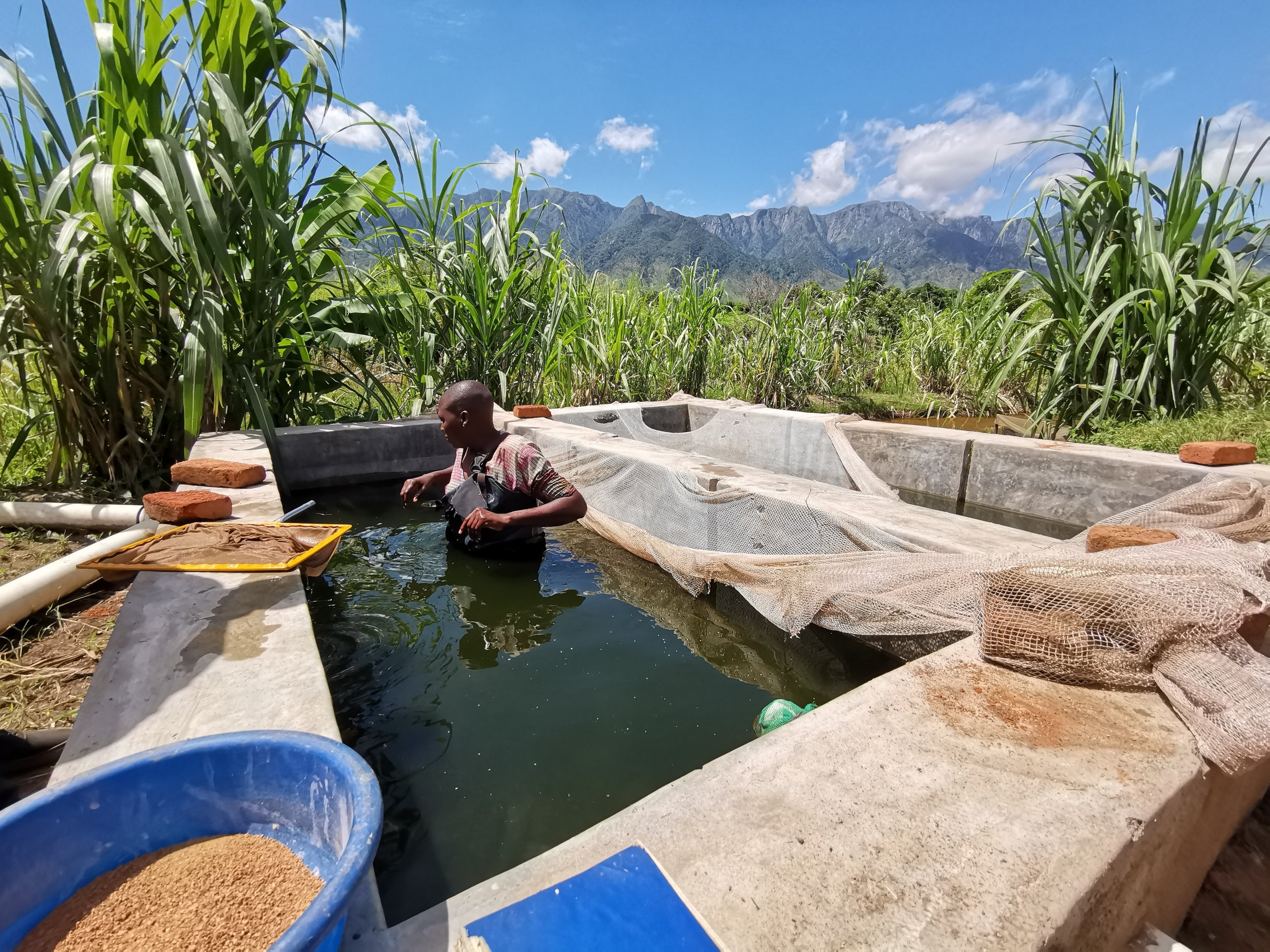Will Leschen was joined in the field by new PhD student Olek Kaminski in the final evaluation of the “Small-Scale Hatchery Aquaculture Seed Production (SHASP) project in Malawi. The three year funded program funded by the Scottish Government came to an end in March 2019. Researchers at the Institute of Aquaculture and technical staff from Umodzi Consulting worked together with 15 independent Hatchery Operators (HO) in southern Malawi.
The HOs run as small financially sustainable business enterprises that aim to sell tilapia fingerlings to fish farmers in their locales. The approach, sometimes called a Decentralized Seed Distribution (DSD) model, has had major success in countries like Bangladesh. In Africa, the shortage of high quality seed is often seen as a major obstacle to aquaculture development. For decades governments have tried to stimulate aquaculture by disseminating seed through state-funded public hatcheries. As aquaculture grows and commercialises in Africa, there is a growing need for the private sector to take up this role. The HOs in southern Malawi are amongst the first small, independent hatcheries in the country, some of who are located in remote rural areas.
Grading fish in a raceway (fingerling holding concrete pond)
Running a low-cost hatchery in rural areas without electricity and tarred roads is not without its challenges. The HOs breed O. shiranus and C. rendalli grading fry every 21 days and moving them between ponds, hapas and small concrete raceways. Some HOs were able to sell up to 30,000 fingerlings within their first year, whilst others struggled with the intricacies of breeding fish and pond management.
Some immediate challenges for HOs was accessing feed and fertiliser to maintain broodstock and feed juveniles but also in the knowledge and skills required to run a hatchery as a business. Convincing smallholder farmers in their locales to purchase seed emerged as a major challenge. After decades of depending on government-run and donor-driven programs that supply fingerlings, often as a subsidy, farmers still need to build relationships and trust with the newly established HOs.
Collecting fingerlings in a raceway
Since seed supply has been historically volatile from year to year, depending on donor projects, farmers have also become accustomed to recycling their fish and breeding their own fingerlings, sometimes for generations, which ultimately leads to lower quality seed being circulated from farmer to farmer.
As the SHASP project draws to a close the lessons and ways foreword are being drawn up. A final report to the Scottish Government is being finalised, however, the learning and research outputs will carry through to new research projects on the horizon. There is increased interest in aquaculture development in Malawi with current and future projects looking to build on the success of the SHASP project, mostly in having the HOs supply high quality fingerlings to smallholder farmers. Researchers at the Institute of Aquaculture will keep working with the HOs as well as exploring other agribusiness models to keep improving the aquaculture value chain in Malawi. More information from PhD student, Olek Kaminski, is forthcoming as he begins to look at smallholder agribusinesses in Malawi and Zambia.
Banner Photo: A family operating a hatchery and utilising fish feed imported from Zambia


